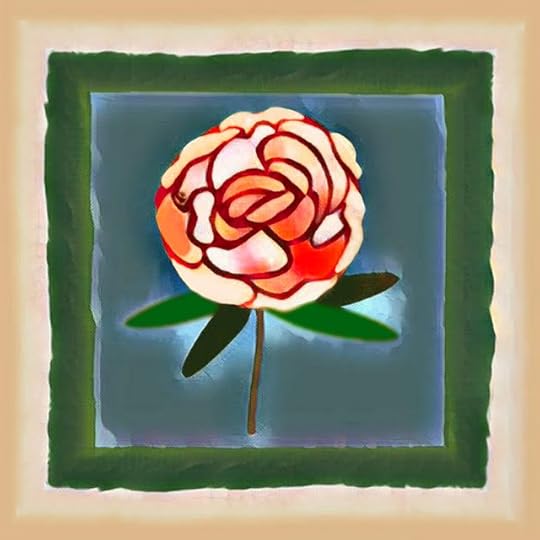John Janaro's Blog, page 174
September 26, 2018
A New Heart, a New Spirit

Thus says the Lord:
"I will take you away from among the nations,
gather you from all the foreign lands,
and bring you back to your own land.
I will sprinkle clean water upon you
to cleanse you from all your impurities,
and from all your idols I will cleanse you.
I will give you a new heart and place a new spirit within you,
taking from your bodies your stony hearts
and giving you natural hearts.
I will put my spirit within you
and make you live by my statutes,
careful to observe my decrees.
You shall live in the land I gave your ancestors;
you shall be my people, and I will be your God."
~Ezekiel 36:24-28
Published on September 26, 2018 14:04
September 25, 2018
"September" Art and Photography
Here are a few digital art projects and photos from the end of the Summer that have been posted on other media.
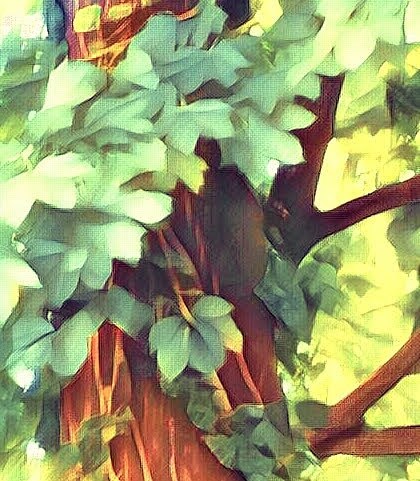 This is called "September" (art).
This is called "September" (art).
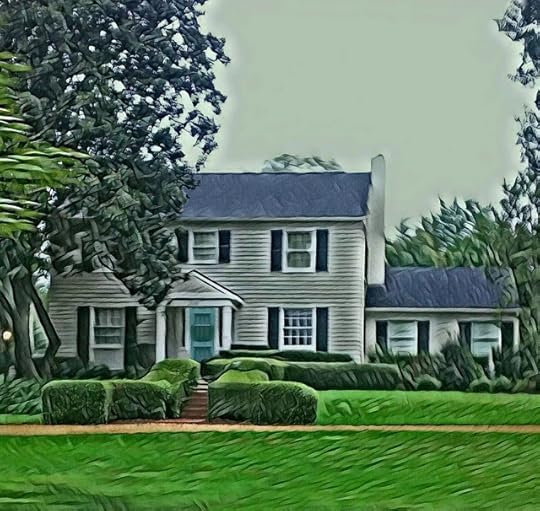 "Virginia country house" (art).
"Virginia country house" (art).
 "Blue Ridge Mountain Roads" (art).
"Blue Ridge Mountain Roads" (art).
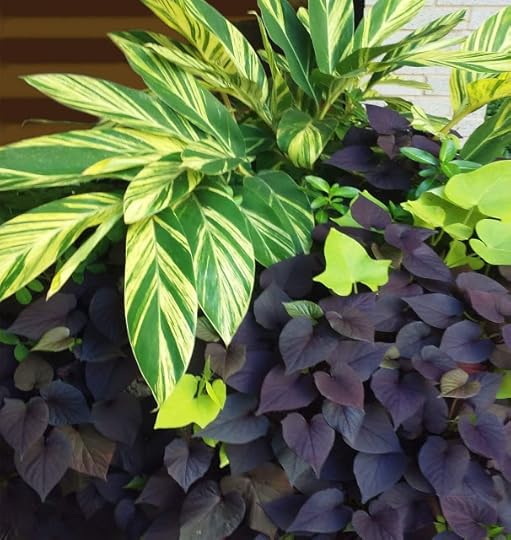 A pic of some potted foliage in the front of a building in "the big city."
A pic of some potted foliage in the front of a building in "the big city."
I thought the color variety was pretty interesting.
 Sunset in the neighborhood (around 7 PM these days) featuring
Sunset in the neighborhood (around 7 PM these days) featuring
the steeple of the local Baptist church (photo).
 This is called "September" (art).
This is called "September" (art). "Virginia country house" (art).
"Virginia country house" (art). "Blue Ridge Mountain Roads" (art).
"Blue Ridge Mountain Roads" (art). A pic of some potted foliage in the front of a building in "the big city."
A pic of some potted foliage in the front of a building in "the big city."I thought the color variety was pretty interesting.
 Sunset in the neighborhood (around 7 PM these days) featuring
Sunset in the neighborhood (around 7 PM these days) featuringthe steeple of the local Baptist church (photo).
Published on September 25, 2018 20:43
September 24, 2018
Suffering and Christian Life: Sometimes It's Just SO HARD
 "For God so loved the world that He gave His only Son, so that whoever believes in Him might not perish but have eternal life" (John 3:16).
"For God so loved the world that He gave His only Son, so that whoever believes in Him might not perish but have eternal life" (John 3:16).God brings salvation through Jesus Christ, through His suffering and death on the cross. In ways that are mysterious, personal, particular to each one out us, He invites us to share His sufferings so that we might also share in His resurrection.
Jesus unites us to Himself on the cross. Often there is consolation and a sense of strength in knowing this and calling it mind. You look at the cross and it brings peace. Certainly you should do this as much as possible.
But sometimes, in some circumstances, it's just very very hard.
It's so hard, when you can't see Him. He's brought you so close to Him on the cross that you're seeing and feeling the wounds and you can't see His face.
We believe that Christ is risen, and that our real life is in Him. There's a radical joy in the hope of eternal life. Suffering and death are not the final words on our existence.
There's also sorrow and suffering because we're human, because we don't understand, and because faith and hope can be very obscure. But God knows our hearts, better than we know them ourselves.
Salvation is not an escape from being human, from suffering and sorrow. It redeems our humanity and gives meaning to suffering that is otherwise incomprehensible, that even seems cruel.
God not only binds our wounds. He bears them in their open, bleeding, emptying-into-death and transfigures them in His risen body into the signs of the love that lives forever.
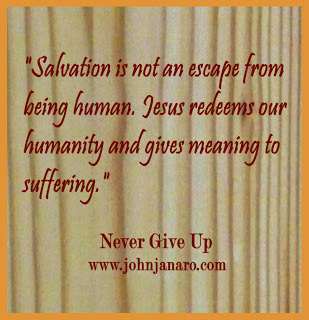 That sounds mysterious and profound and good.
That sounds mysterious and profound and good.But how does such a statement "connect" to the actual experience of the pain and dying of me and you from moment to moment? If we're looking for pablum, for a sentimental solution, or any solution we can measure, then these words will fail us. They will sound like abstract theology.
God didn't give us pablum for our salvation. He didn't give us "solutions" for our salvation. He gave us His Son.
Explanations fail us, people fail us, our own bodies and brains ultimately fail us. Jesus will never fail us.
"Whoever believes..." Hold onto Him, and don't let go. Allow Him to hold you.
Don't go away. Don't run from Him. Stay. Let Him hold you.
"For God did not send his Son into the world to condemn the world, but that the world might be saved through Him" (John 3:17)... so that you might be saved through Him.
Don't lose hope. He will hold on to you.
Published on September 24, 2018 20:38
Christian Suffering: Sometimes It's Just SO HARD
 "For God so loved the world that He gave His only Son, so that whoever believes in Him might not perish but have eternal life" (John 3:16).
"For God so loved the world that He gave His only Son, so that whoever believes in Him might not perish but have eternal life" (John 3:16).God brings salvation through Jesus Christ, through His suffering and death on the cross. In ways that are mysterious, personal, particular to each one out us, He invites us to share His sufferings so that we might also share in His resurrection.
Jesus unites us to Himself on the cross. Often there is consolation and a sense of strength in knowing this and calling it mind. You look at the cross and it brings peace. Certainly you should do this as much as possible.
But sometimes, in some circumstances, it's just very very hard.
It's so hard, when you can't see Him. He's brought you so close to Him on the cross that you're seeing and feeling the wounds and you can't see His face.
We believe that Christ is risen, and that our real life is in Him. There's a radical joy in the hope of eternal life. Suffering and death are not the final words on our existence.
There's also sorrow and suffering because we're human, because we don't understand, and because faith and hope can be very obscure. But God knows our hearts, better than we know them ourselves.
Salvation is not an escape from being human, from suffering and sorrow. It redeems our humanity and gives meaning to suffering that is otherwise incomprehensible, that even seems cruel.
God not only binds our wounds. He bears them in their open, bleeding, emptying-into-death and transfigures them in His risen body into the signs of the love that lives forever.
 That sounds mysterious and profound and good.
That sounds mysterious and profound and good.But how does such a statement "connect" to the actual experience of the pain and dying of me and you from moment to moment? If we're looking for pablum, for a sentimental solution, or any solution we can measure, then these words will fail us. They will sound like abstract theology.
God didn't give us pablum for our salvation. He didn't give us "solutions" for our salvation. He gave us His Son.
Explanations fail us, people fail us, our own bodies and brains ultimately fail us. Jesus will never fail us.
"Whoever believes..." Hold onto Him, and don't let go. Allow Him to hold you.
Don't go away. Don't run from Him. Stay. Let Him hold you.
"For God did not send his Son into the world to condemn the world, but that the world might be saved through Him" (John 3:17)... so that you might be saved through Him.
Don't lose hope. He will hold on to you.
Published on September 24, 2018 20:38
September 20, 2018
Rose Study, Number 5
Published on September 20, 2018 20:30
September 19, 2018
The Waking Dreams of My Father
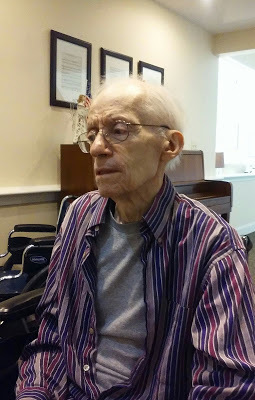 I don't know how to talk about what Dad is going through, or what I'm going through trying to stay precariously balanced in a situation that is always changing.
I don't know how to talk about what Dad is going through, or what I'm going through trying to stay precariously balanced in a situation that is always changing.So I'm just going to "talk" about it, rambling and writing whatever comes out.
This is something I never imagined, ever, in the first 54 years of my life.
When my Dad started to slow down in his late 70s, and after he moved into his 80s and slowed down more, I sometimes thought that when we said goodbye at the end of one of our frequent visits to Arlington, it might be the last time.
I thought, "Maybe this is it. Maybe I'll never see him alive again in this world." I thought about that possibility. I won't say I was prepared for it, but I saw it on the horizon.
When his motor coordination and memory began to decline gradually last year, I figured it was the initiation of a slow decline.
But Dad was dependable. He was always basically the same (at least as I perceived him). He took care of my Mom. He took care of my brother and me, taught us the value of hard work and being professional, but without goading us. Worldly success was not an inflexible imperative; when health problems brought my own career crashing down, he was there to help and to be quietly understanding.
He loved his grandchildren and they loved their "Papa." When the kids were little, they saw my parents a lot. We would spend many weekends (and longer visits during the Summer) at their place, with the kids in sleeping bags on the floor in the living room.
Then came the year 2018. What is probably an Alzheimer's related dementia rapidly accelerated in a few months to the point where he now only occasionally manages to speak a coherent sentence. He has also completely lost the ability to walk.
He seems adjusted to his new physical surroundings after 6 months (though he doesn't really know where he is; sometimes he thinks still at home, or in a hotel, or at a conference, or we don't know because he says words that don't make sense). He gets frustrated because he can't remember what he wants to say to us, or how to say the words.
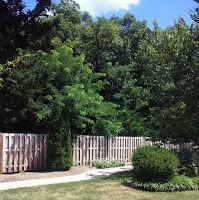 My brother and I get to see him a lot, and he still recognizes us. A lot of impressions go through his mind from the past, from things that happened a long time ago, from things that never happened at all. At one point the other day, he grabbed our arms and said, "You're real, right? You're really here."
My brother and I get to see him a lot, and he still recognizes us. A lot of impressions go through his mind from the past, from things that happened a long time ago, from things that never happened at all. At one point the other day, he grabbed our arms and said, "You're real, right? You're really here."My father lives in a world of obscurity, of waking dreams. Thank God he is being well cared for, and that we can spend time with him.
It has taken me a long time just to realize how difficult it is for me to accept that my Dad is incapacitated. When he says things that make no sense, it's not my fault that I can't understand him.
It's not my fault. That would seem obvious, but it's different when it's your own father's face in front of you, still with some of the expressions you have seen--and the voice you have heard--ever since you were born. This is the face and the voice that raised you, that you respected and that always made sense. Around your own middle age, you finally began to realize how much sense and how much wisdom and how much love came from that face and that voice.
It's still there. Occasionally something flashes through, suddenly and rapidly. He grabbed my shoulder today and said, "Solid fellow. Solid fellow." He is still the same living breathing human person; he is just handicapped by a terminal illness. He can still give and receive love. And we have to remember that as the illness progresses and he can no longer grab our shoulders or even open his own eyes.
I know there is deep down mysterious suffering for my Dad. I pray for him all the time, and trust in God who knows him entirely and loves him completely. God knows what my Dad needs in this last season of life, and for eternity.
Well, that's enough rambling from me. I'm battling to keep my own head above water. Even though I often feel useless, I also see (as much as a human being can see such things) that my task in this life is not yet completed. Even if it seems like nothing, I'll do what I can for each day and throw myself upon the mercy of God.
Published on September 19, 2018 20:52
September 16, 2018
What Would I Do Without Music?
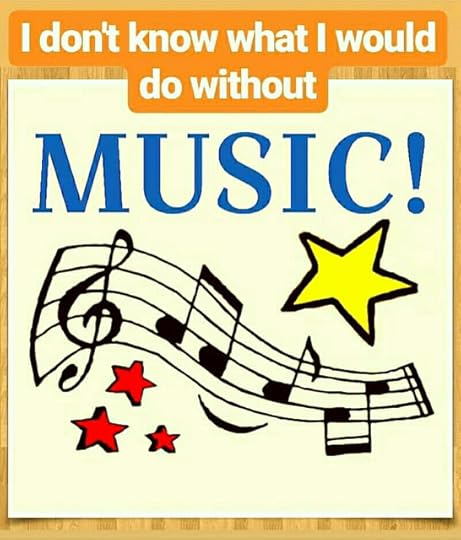
I really really don't know what I would do without music. And it's been a good summer of music, with more than the usual amount of live music. I have already written about the concert we saw in July, but I want to at least make reference a couple of other moments.
We had a lovely evening in August when our friend Marie Miller took a break from her headlining summer tour to sing and play music with some friends at the Front Royal Brewery, a new local spot:
 Not a good picture, but definitely good music: LtoR, Anna and Rachel McMahon, Marie Miller, Kenny Kohlhaas.
Not a good picture, but definitely good music: LtoR, Anna and Rachel McMahon, Marie Miller, Kenny Kohlhaas.Then, of course, on Labor Day weekend we had the fourth annual Appaloosa Festival, which is always a highlight of the season.

With our hosts, the great Scythian....

...along with numerous other excellent bands on multiple stages. I took some good pictures and posted them on Instagram and other places. Here is a sample to serve as an overview:

After a hot Sunday afternoon, we were all glad to see this beautiful sunset, with plenty of music still ahead:
 We had a great time, once again!
We had a great time, once again!I don't know if I'll see more live music this Fall. But if I do have a chance, I wouldn't mind seeing the "Contemporary R&B" Queen who will be touring for her new album Hiding Place, that was just released Friday.
Tori Kelly is a California girl with Anglo, Puerto Rican, and African Jamaican roots. In this new album, she collaborates with Kirk Franklin and some excellent singers and musicians to give a contemporary spin to the old fashioned gospel music genre.
Really good stuff. And from what I have seen on YouTube she sings a spectacular live show.
Stay tuned....

Published on September 16, 2018 08:30
September 15, 2018
Takashi Nagai's Journey to Christ
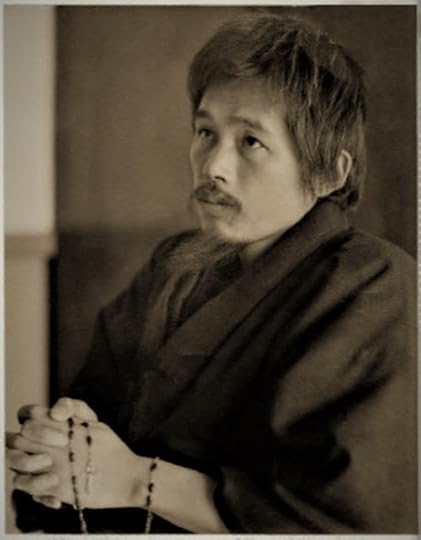
I am republishing my blog post from March about Takashi Nagai, and adding to it a photo reproduction of my article about his early life and his encounter with Jesus Christ in the Catholic Church. Some may have seen the article in this month's issue of Magnificat. This post will fill in a few details about the rest of his great life.
Dr. Takashi Nagai (1908-1951) was a Japanese medical doctor, a scientist and pioneering researcher who specialized in radiology, a highly respected professor, a beloved husband and father, and a convert from atheism to Jesus Christ and his Church. My article about his conversion appears in Magnificat's September 2018 issue.
But there is another story, the story of a more profound conversion, a radical change in Dr. Nagai's whole life that set him on the road to a greater faith, but also involved his passing through an almost unimaginable horror that began at 11:02 AM on August 9, 1945.
First, here is a copy of the article about his early life that just appeared in print:
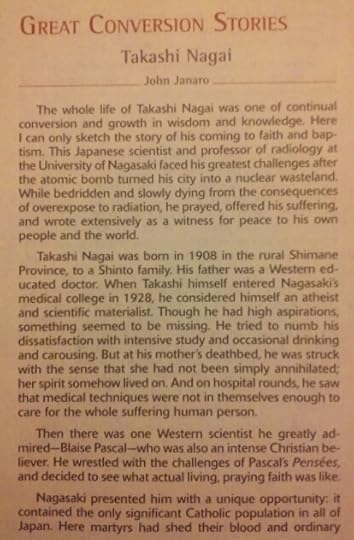
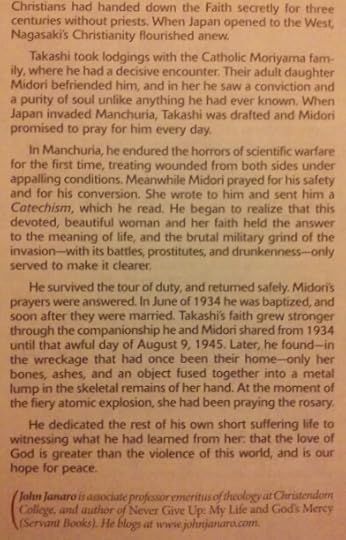
****************************************************************************************************************
I can only say that the story of this great man, his wife, his family, his colleagues, and his community is one of the most intense and heart-wrenching and terrifying and beautiful stories I have ever come across in the twentieth century Church.
It is a story he lived long enough to tell, in a book called The Bells of Nagasaki.
The Catholics of the Urakami district of Nagasaki, the disciples of Francis Xavier, the survivors of three centuries of persecution, were not specifically the intended target of the second atomic bomb. But because of various circumstances including weather conditions and wind, the very heart of Christianity in Japan--home to some 30,000 Catholics and their cathedral--became, literally, Ground Zero.
Many thousands of people were immediately reduced to ashes, including an estimated 8,000 Christians at the epicenter who were going about their morning routines, living, working, and praying. The cathedral was packed with worshippers praying for peace when the bomb exploded in the air above it. People in the vicinity of Ground Zero died where they were standing, sitting, or kneeling, in a flash.
The Nagai children were outside the city with their grandmother on that day. But their mother Midori Nagai was in the kitchen of their home in Urakami near the cathedral. The old home was built over a cowshed where her ancestors, the secret Christians, had gathered to pray and pass on their faith for seven generations without any priests, with only a basic catechism and the sacrament of baptism.
Days later her husband found remnants of her skeleton in the midst of the ruins, and some melted metal in the remains of the bones of her hand where he could barely make out the outline of a crucifix. Like so many of the Christians at Ground Zero, Takashi Nagai's wife had a deep devotion to Mary. When the awful fire fell, she had been praying the rosary.
Dr. Nagai was working at the Nagasaki University hospital on that morning. He was pinned under the wreckage of his laboratory, seriously injured but alive. Eventually the handful of doctors, nurses, and students who survived were able to reach him, stop the worst of his bleeding, and bring him to his feet. They formed a team that for several days worked heroically to treat whomever could be rescued from the flames and the scorched ground where there had once been a city.
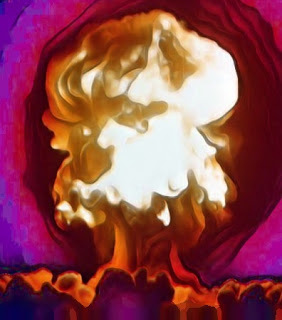 As doctors, they did what they could to help the wounded, without medicines or supplies. As scientists, they discussed among themselves with horror and wonder the phenomenon that had occurred. They didn't know of the attack on Hiroshima, but they were able to see that this was a wholly new kind of bombing. Dr. Nagai and his colleagues were aware of the trajectory of atomic research, and had heard rumors that efforts were being made to use that research to make a horrible weapon, a nuclear bomb.
As doctors, they did what they could to help the wounded, without medicines or supplies. As scientists, they discussed among themselves with horror and wonder the phenomenon that had occurred. They didn't know of the attack on Hiroshima, but they were able to see that this was a wholly new kind of bombing. Dr. Nagai and his colleagues were aware of the trajectory of atomic research, and had heard rumors that efforts were being made to use that research to make a horrible weapon, a nuclear bomb.Their experience convinced them that these efforts had succeeded, and that they were living through a nuclear holocaust. And it wasn't over yet.
In the hours, then days, then weeks that followed, many people who had survived the blast developed strange and often fatal illnesses from radiation poisoning. Still others would succumb to their injuries. After a month of exhausting labor caring for the wounded and struggling to stay on his own feet, Dr. Nagai himself collapsed and was on the verge of death. His colleagues gave up hope of saving him as he moved in and out of a coma.
He recalled that he was prepared to die, but felt the desire and the need to live for the sake of his children (who had already lost their mother). Then he had a very unusual experience, which he reported to be something like a voice prompting him in a very specific way. In order to understand the significance of this prompting, we should note that Saint Maximilian Kolbe had lived in Nagasaki from 1930-1936 and was well known and much loved by the Catholic community. He had even been one of Dr. Nagai's patients. Fr. Kolbe had, of course, returned to Poland where the final act of his own drama awaited, and all news of him was blocked by the war.
But as Dr. Nagai lay dying, a voice seemed to urge him to "pray to Fr. Kolbe" for healing. No one in Japan knew that Fr. Kolbe was even dead, much less that he had died a martyr, but Takashi Nagai prayed for the intercession of the beloved friar. Soon after, he emerged from the coma, and the injury causing immediate danger to his life was inexplicably healed.
His fellow doctors said it was a miracle.
Unfortunately, his overall health was broken by radiation-induced leukemia, which eventually rendered him an invalid. From his bed, he turned to writing. In the light of his deepening faith, he wrote about the events he had experienced and their implications for the future. He wanted to record all he could for the sake of his native Japan and its reconstruction, for future scientific research, and as an advocate for peace in the world. He lived until 1951 and wrote 20 books, including The Bells of Nagasaki.
He is held in great esteem in Japan by Christians and non-Christians, and his story deserves to be more widely known. As I continue my literary (and film/video) "tour" of East Asia, you will hear more about him from me. His story is deeply Catholic, sorrowful, mysterious, and marked by the distinctively Japanese cultural character that we need to understand better.
But you don't have to wait for me. Fr Paul Glynn, an Australian priest who lived many years in Japan, wrote a very accessible biography that was recently reprinted by Ignatius Press, which you can get HERE. It is not an easy story, but it is one that needs to be heard, and that is very important for our troubled world today.
Published on September 15, 2018 20:41
September 14, 2018
The Exaltation of the Holy Cross
Published on September 14, 2018 20:30
September 11, 2018
The Cranberries' "New New York"
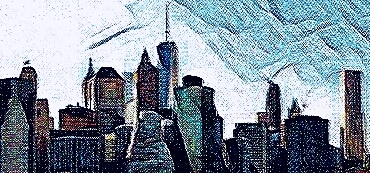 The Irish have a special place in their hearts for New York. The island people and the great American city have been associated by bonds of kinship and admiration for hundreds of years.
The Irish have a special place in their hearts for New York. The island people and the great American city have been associated by bonds of kinship and admiration for hundreds of years.It's not surprising that 9/11/2001 and the days that followed were poignant, tragic, and heroic for the Irish imagination (which is steeped in such things).
On May 30, 2002 the late Dolores O'Riordan visited the ruins of the World Trade Centers in Manhattan. Her impressions became the source of the hardest-rocking song released by The Cranberries since their visceral protest statement against the violence in Northern Ireland in 1994, "Zombie."
But there is something different about "New New York." In addition to being simple, abrasive, direct, and mournful, the song looks beyond the endless repetition of war and destruction. "New New York" is an anthem to a city struggling to rebuild itself.
It concludes in a decisively positive fashion: "They won't tear us apart." With the smoke barely cleared from Ground Zero in 2002, this was a significant statement of hope. New Yorkers and their city have done much since then to realize that hope.
The beginning of this year 2018 brought another tragedy that touched the Irish soul: the sudden death of Dolores O'Riordan at age 46 from the unforeseen consequences of an accident in her London hotel room on January 15.
The conclusion of the inquest was finally announced last week, and ruled out death by suicide.
It seems appropriate to remember those who perished on 9/11/2001 with Dolores O'Riordan's tribute song, as we all hope and pray that together we will see "a new day" that never ends.
WARNING: This video contains rock music. This is not "Dreams" or "Linger," people. It's loud. Turn down your volume, adjust ear phones, etc.
Published on September 11, 2018 19:34

